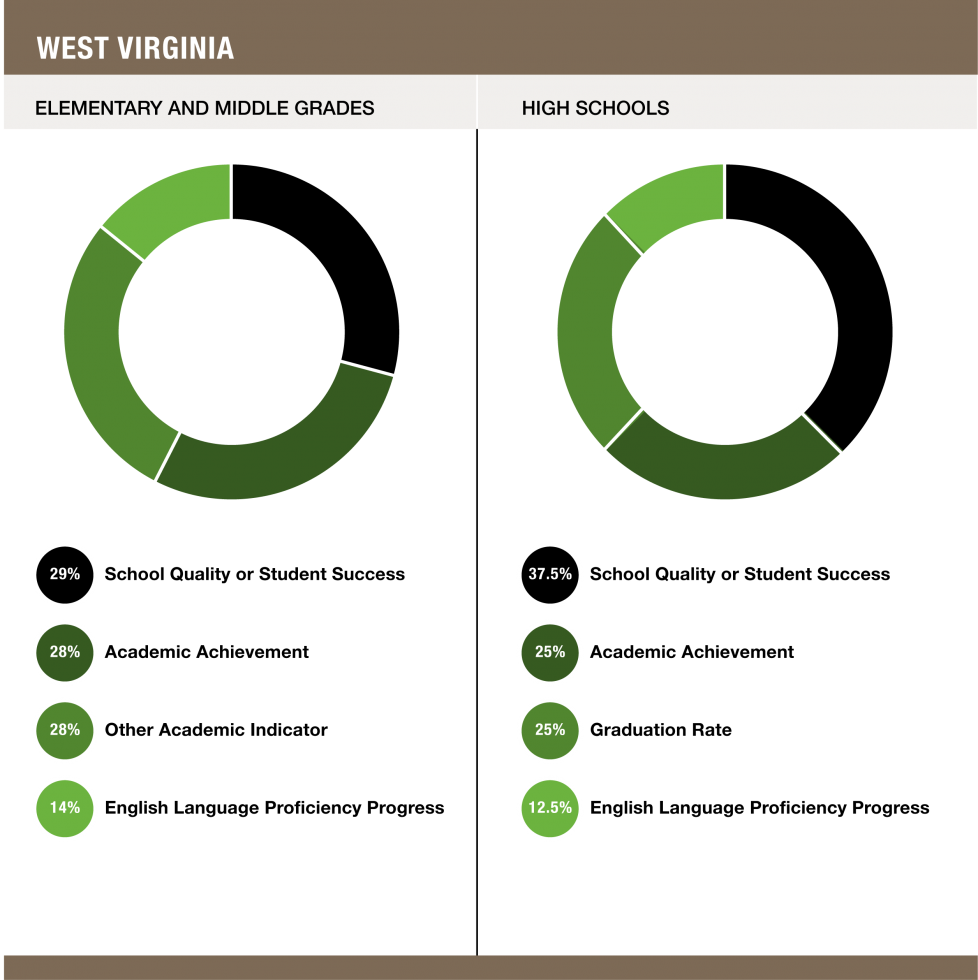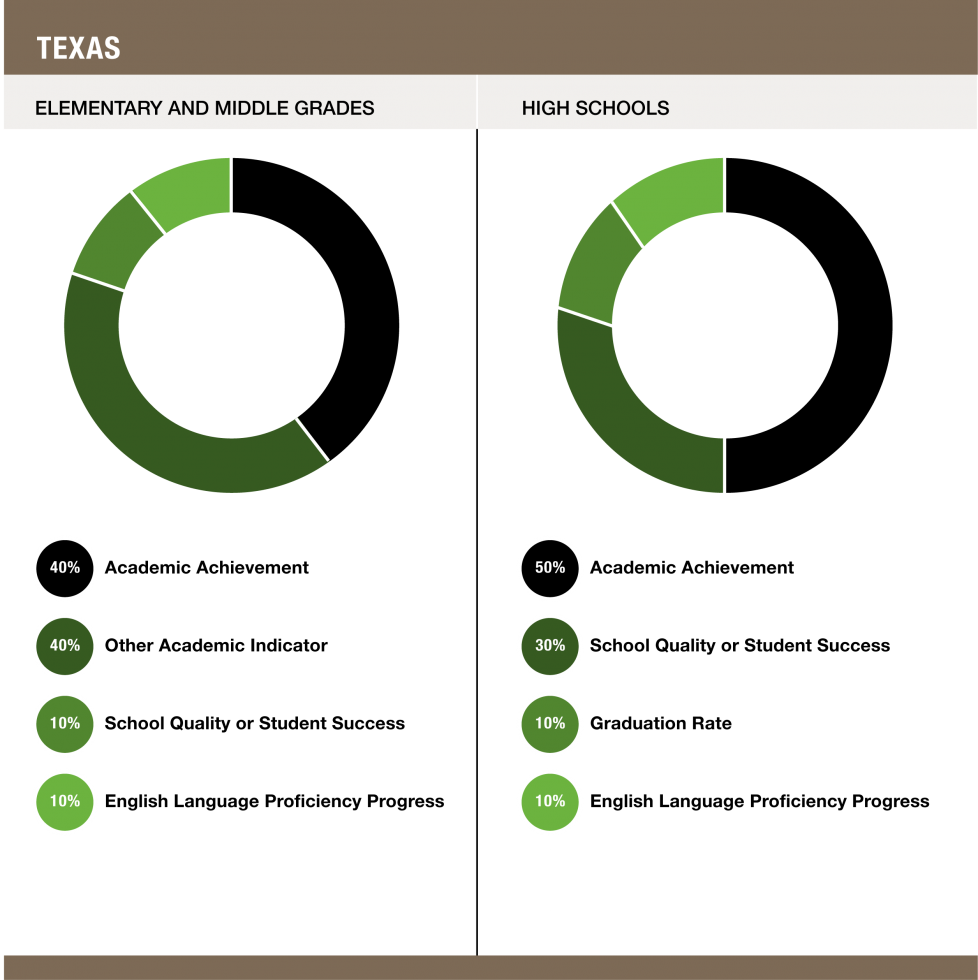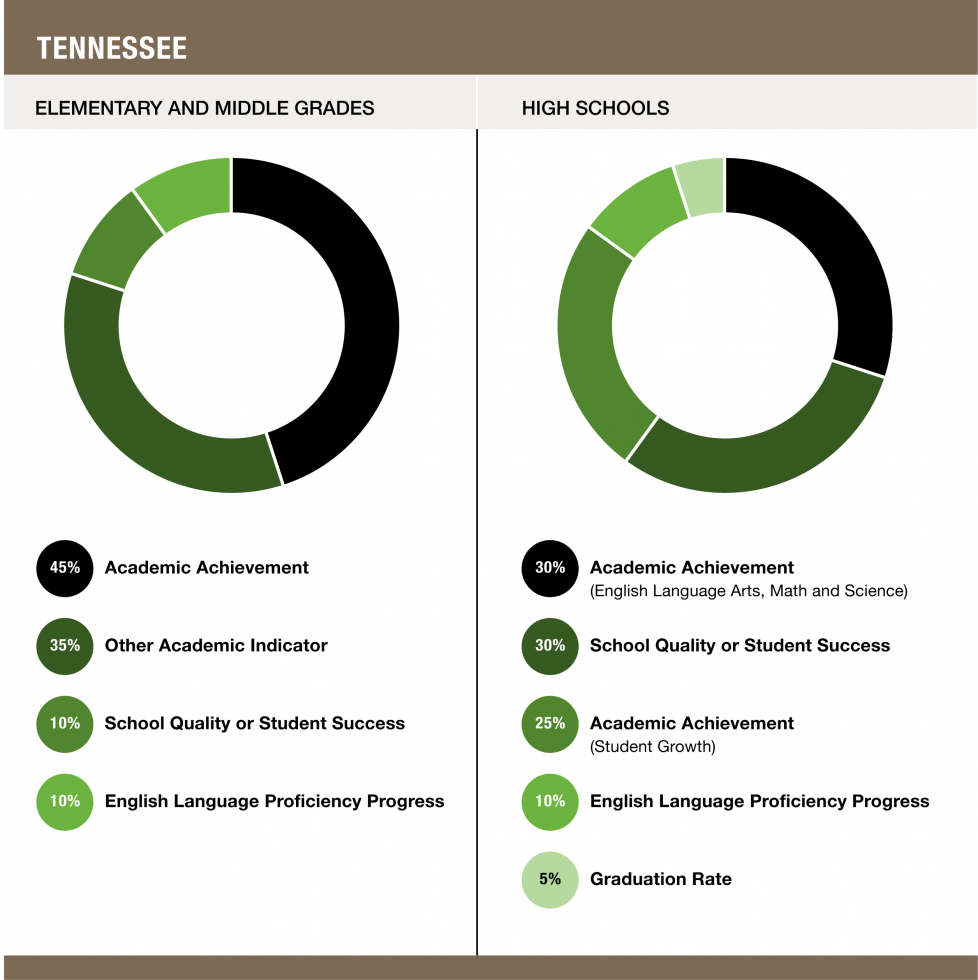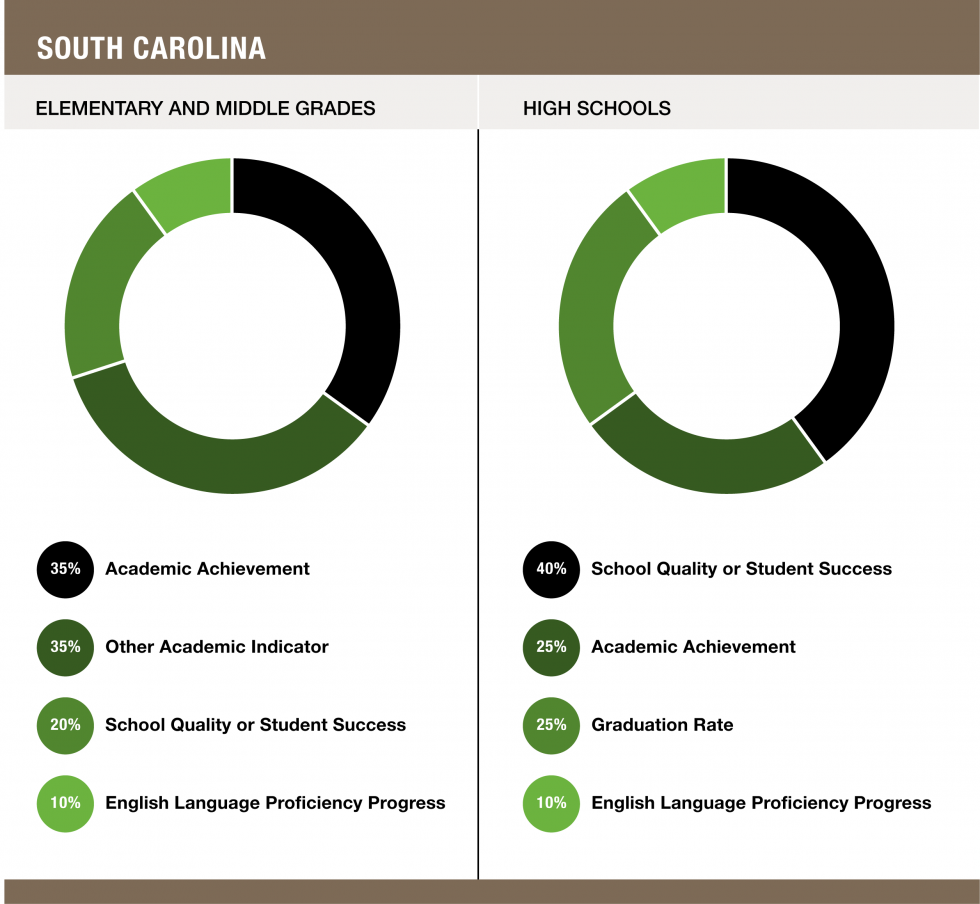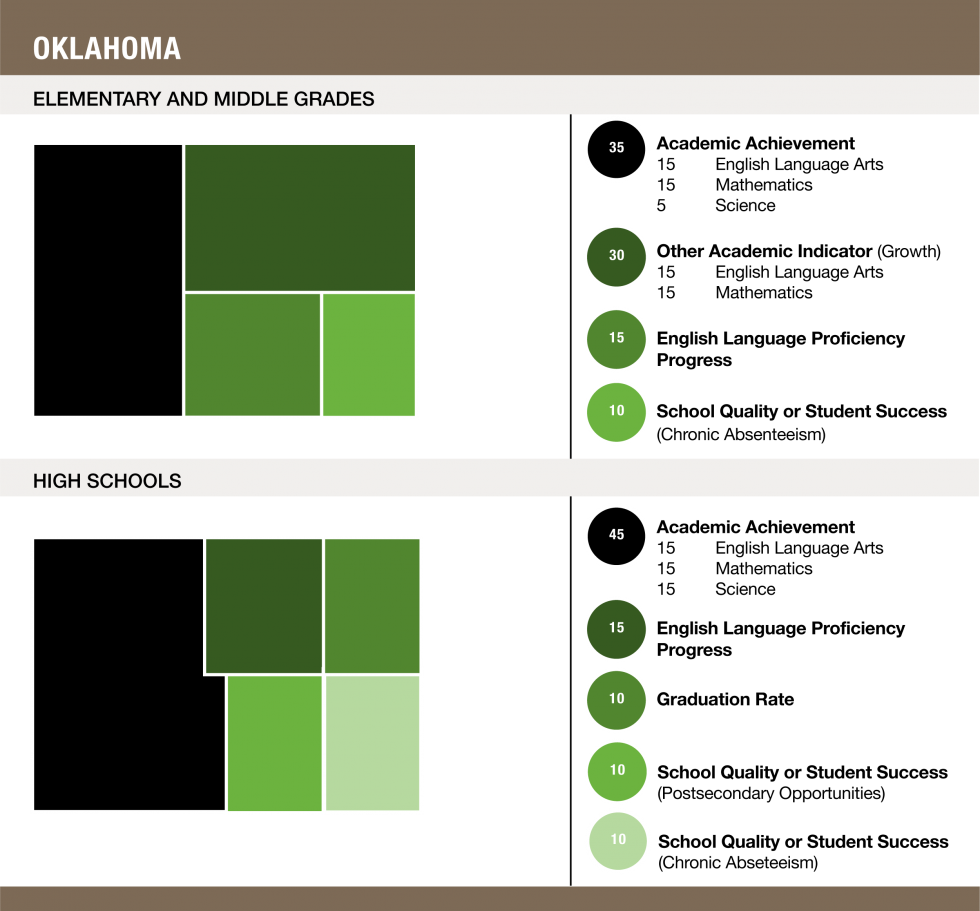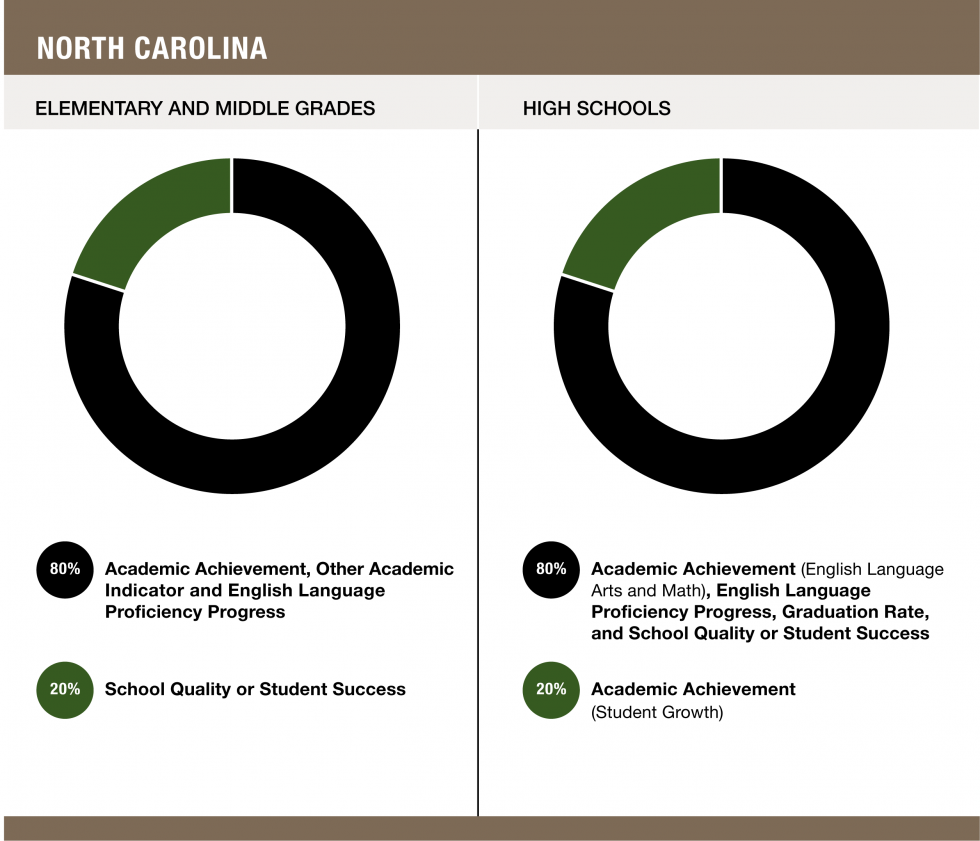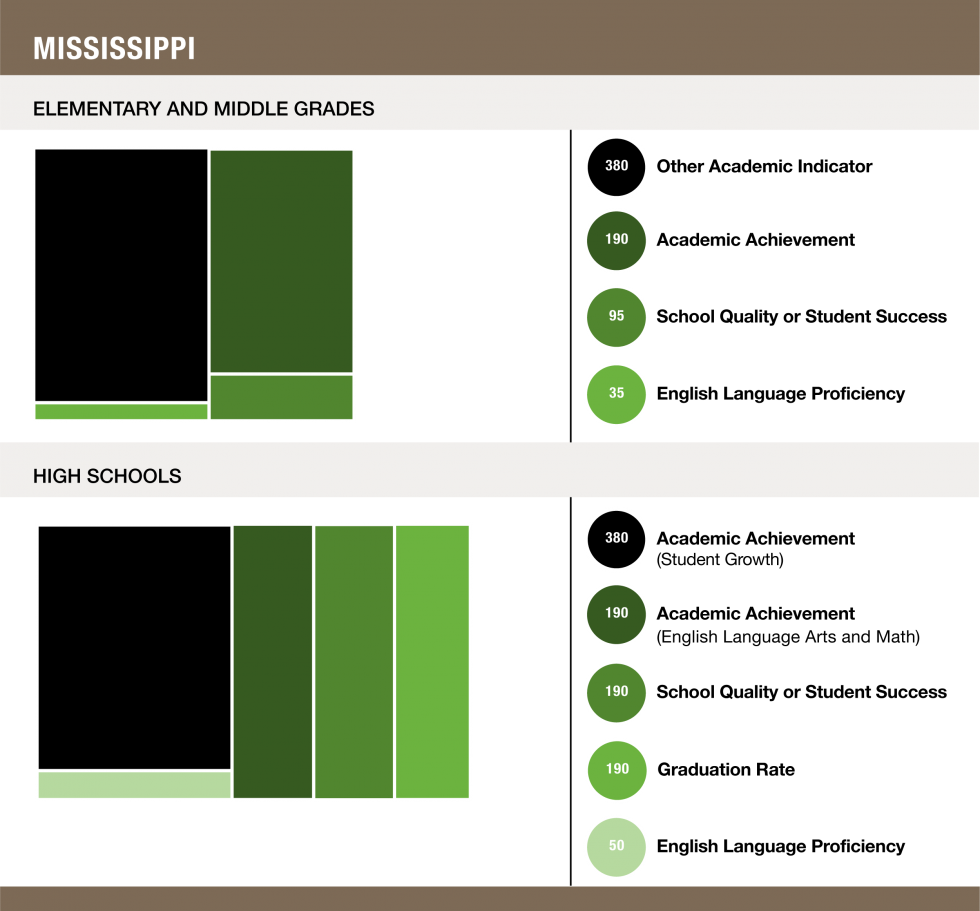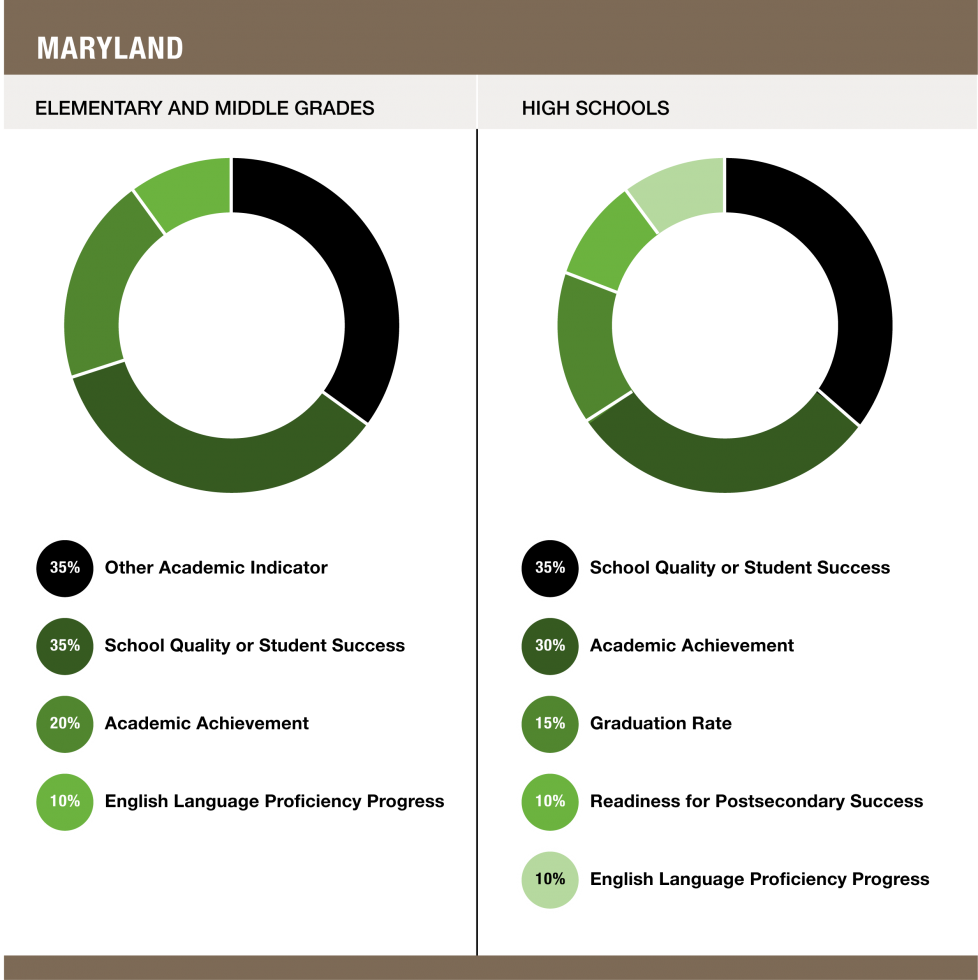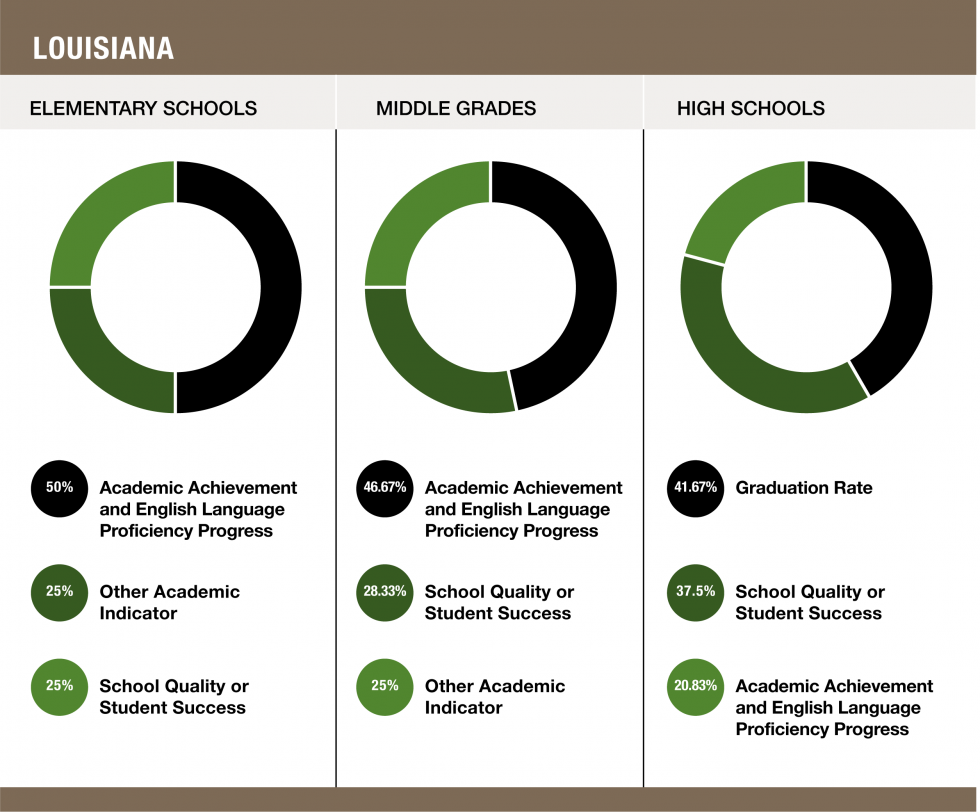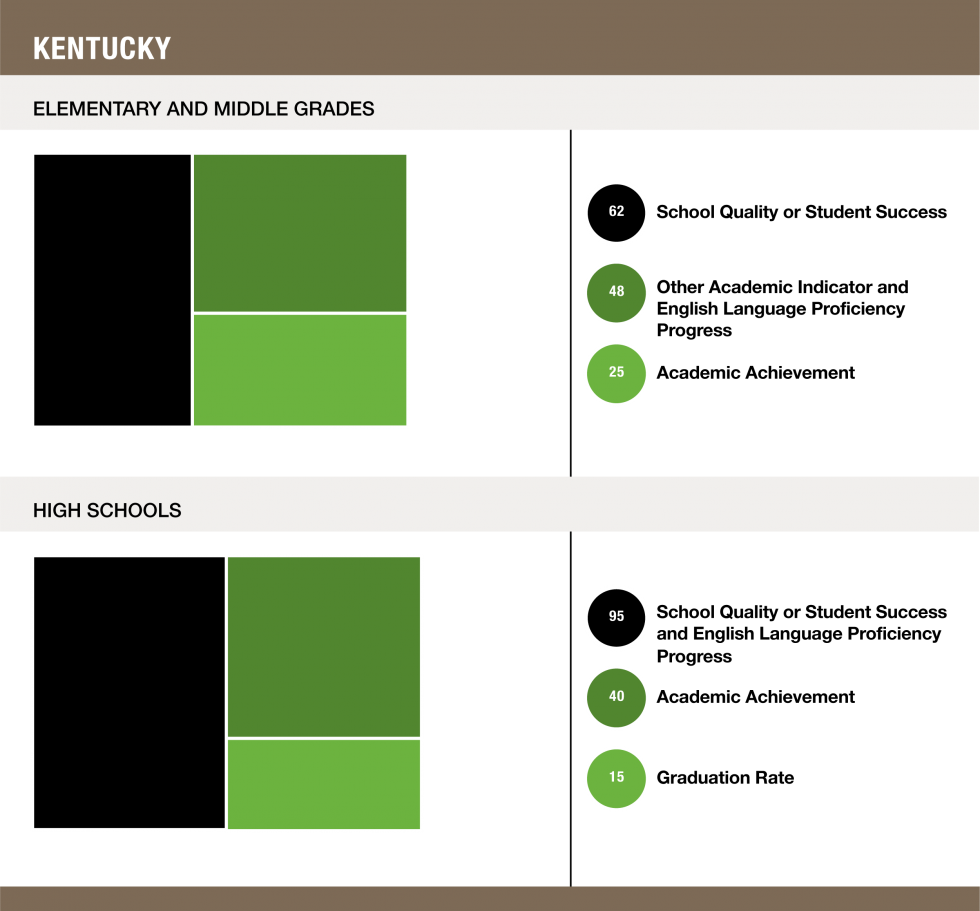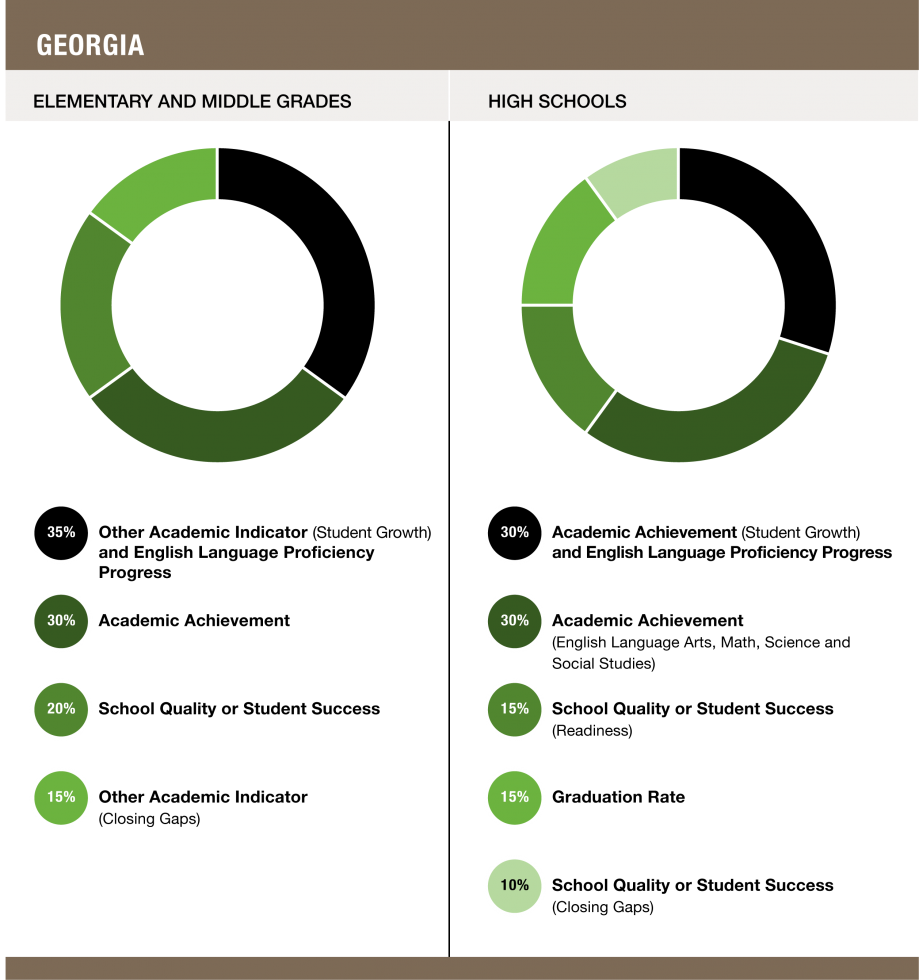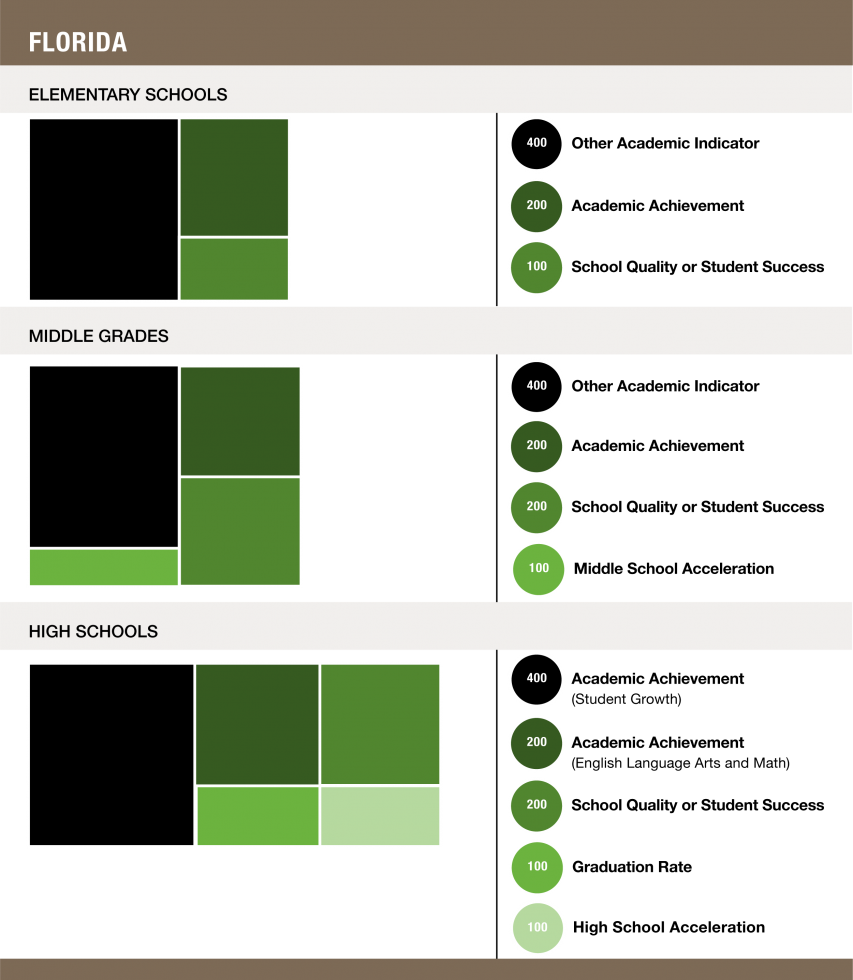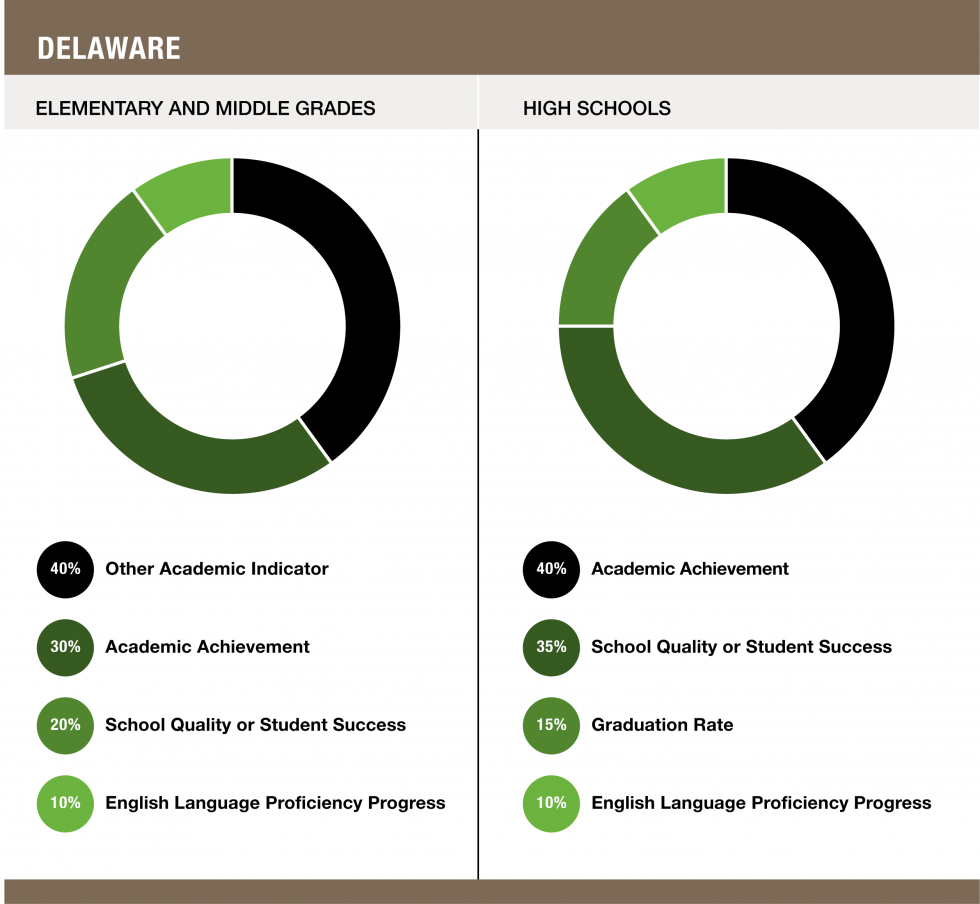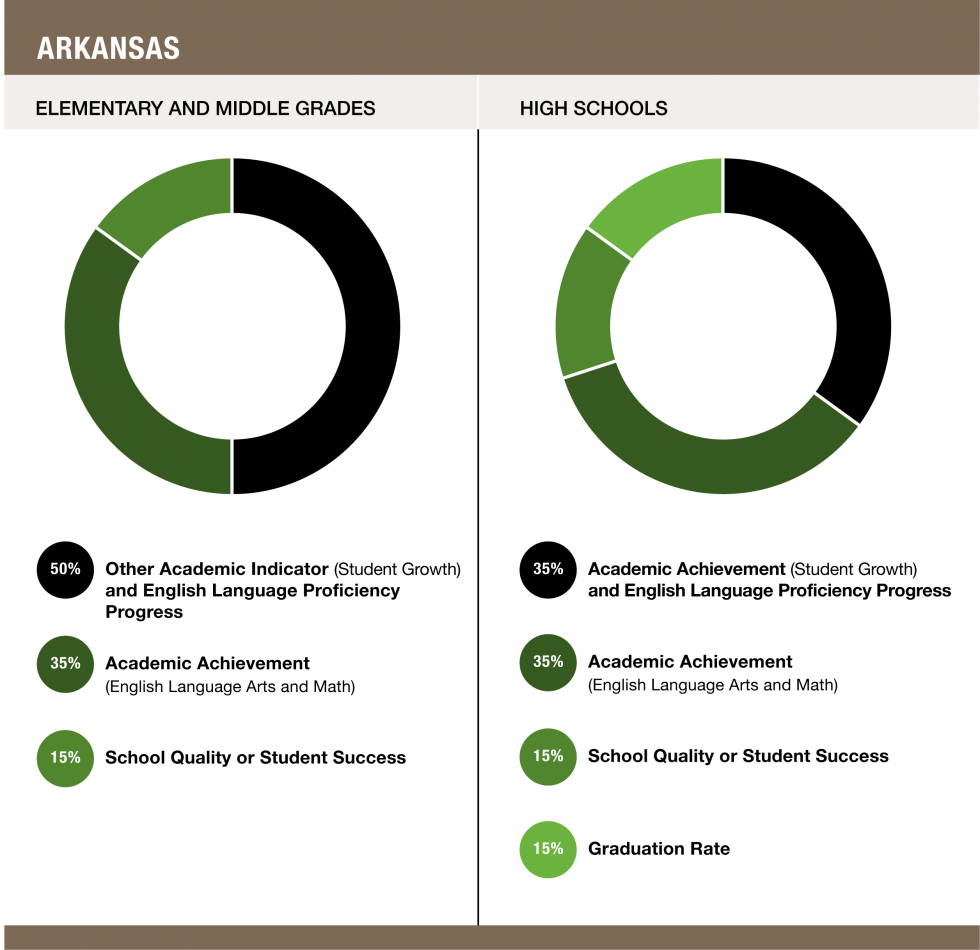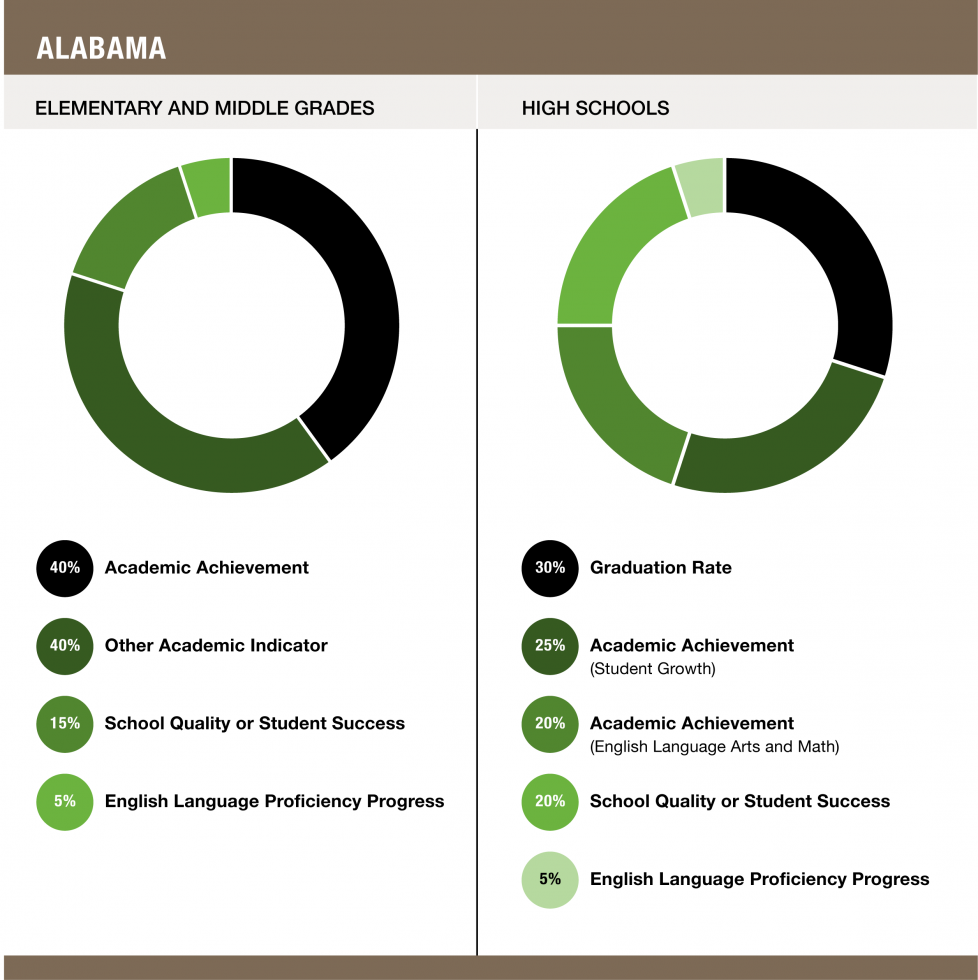Accountability
Accountability
Why Focus on State Accountability Systems?
Accountability systems are an important part of state efforts to increase student achievement. States use accountability systems to articulate their goals and priorities for public education, report publicly on school performance, and shape their work with districts, schools and educators. Schools and districts use accountability systems to identify their strengths and challenges and focus their continuous improvement efforts.
In 2015, the Every Student Succeeds Act (ESSA) replaced the No Child Left Behind Act (NCLB) of 2001 as the latest reauthorized version of the federal Elementary and Secondary Education Act.
ESSA maintains some of the basic requirements for state accountability systems under NCLB. For example, states must still
- establish student learning standards in English language arts (ELA), math, science and English language proficiency for English learners;
- assess students annually in ELA and math in grades three through eight and once in high school, and in science once in grades three through five, six through nine, and 10 through 12; and
- report school performance ratings annually.
ESSA gives states flexibility in shaping many aspects of their systems. For example, states largely establish their own
- long-term goals and timeframes for meeting their goals;
- indicators of school performance and annual targets for schools;
- values for school performance indicators within the framework for determining school performance ratings;
- criteria for identifying schools in need of support and systems for supporting those schools; and
- system for reporting publicly on school performance.
The state profiles distill information about key components of state accountability systems in all SREB Region states.
State policymakers and state education agencies, district and school leaders, and other stakeholders can use these reports to understand state accountability systems, and inform efforts to continually improve policy, practice and outcomes for students.
Access each state’s profile by clicking on the map above. These reports reflect information SREB staff gathered as of June 7, 2018.
Overview of State Profiles and Research Methods
State Profiles
Each state profile summarizes four key components of the state accountability system under the Every Student Succeeds Act (ESSA).
- Long-term goals: What long-term goals did the state set for improving schools?
- School performance indicators: What indicators of school performance does the state use?
- Annual meaningful differentiation: How does the state differentiate school performance? Additionally, how does the state assign value to school performance indicators in determining school ratings, and report student subgroup performance?
- Support for schools: What categories of schools does the state identify? Additionally, when does the state begin identifying schools in need of improvement, what criteria does the state use to identify the schools, what support does it provide them and how does it determine when they no longer need support?
Additionally, at the top of each state’s profile, SREB highlights the state’s goals and indicators for college and career readiness.
Research Methods
SREB benchmarking readiness project staff reviewed the plans states submitted in 2017 and 2018 to the U.S. Department of Education (US ED) for approval.
SREB staff developed a profile for all 16 SREB Region states: Alabama, Arkansas, Delaware, Florida, Georgia, Kentucky, Louisiana, Maryland, Mississippi, North Carolina, Oklahoma, South Carolina, Tennessee, Texas, Virginia and West Virginia.
SREB staff used structured protocols to gather consistent information from all states. To ensure the accuracy of the information in the profiles, SREB staff consulted representatives in the state education agencies. Fourteen state education agencies sent feedback.
The state profiles distill information about key components of state accountability systems in SREB Region states.
State policymakers and state education agencies, district and school leaders, and other stakeholders can use these reports to understand state accountability systems and inform efforts to continually improve policy, practice and outcomes for students.
Access each state’s profile by clicking on the map above. These reports reflect information SREB staff gathered as of June 7, 2018.
Read the Regional Report on College and Career Readiness
Above and Beyond: How SREB States Prioritize College and Career Readiness in ESSA Accountability Plans
Click here to download and print the regional trend report.


